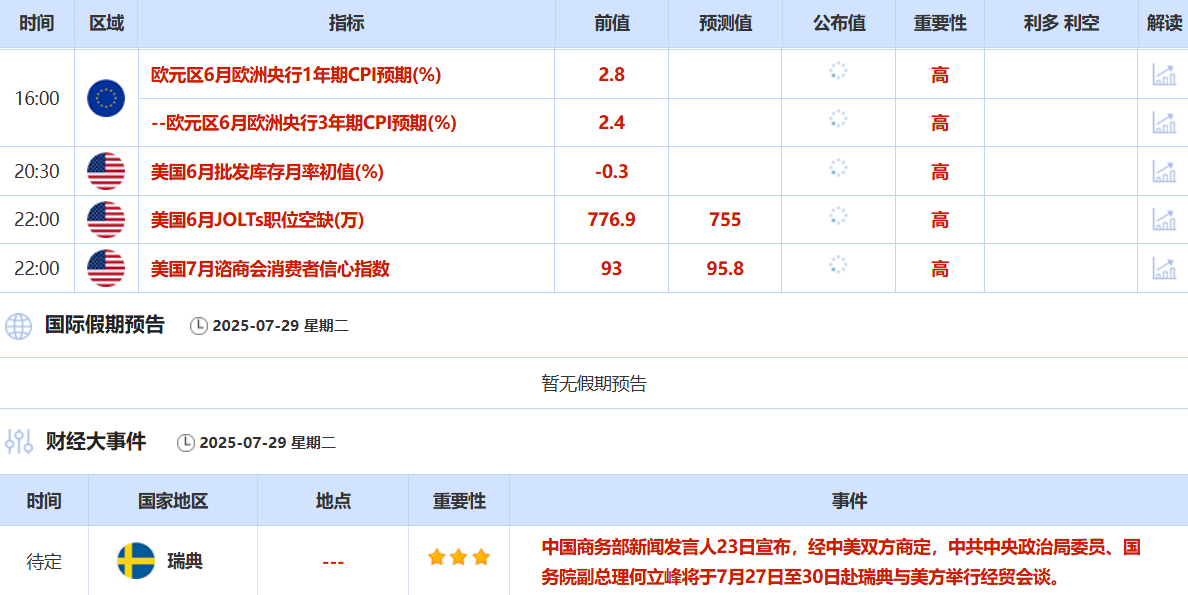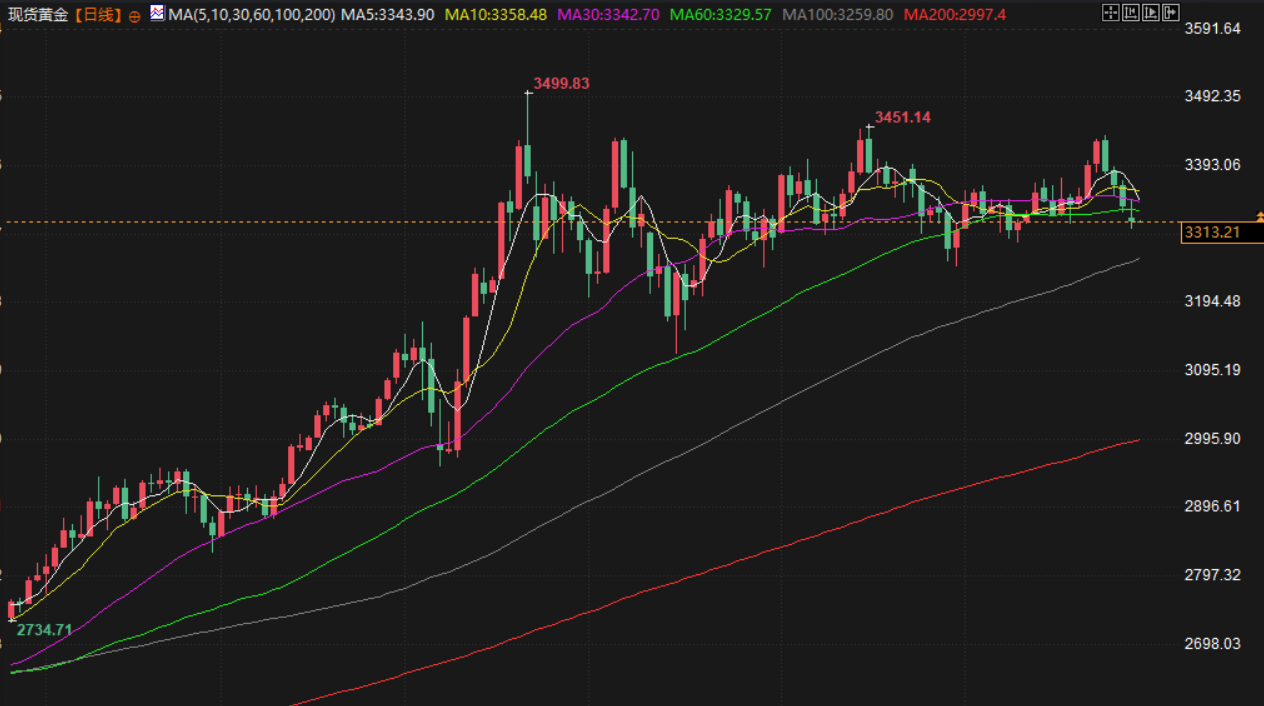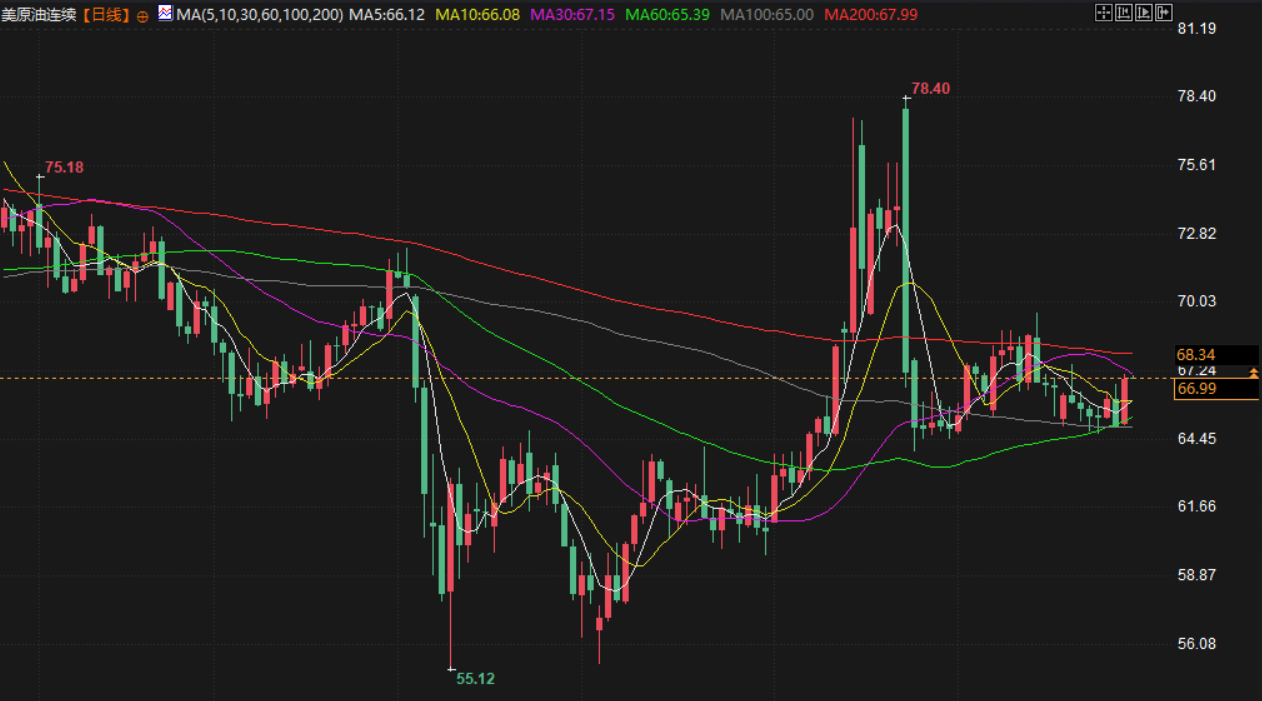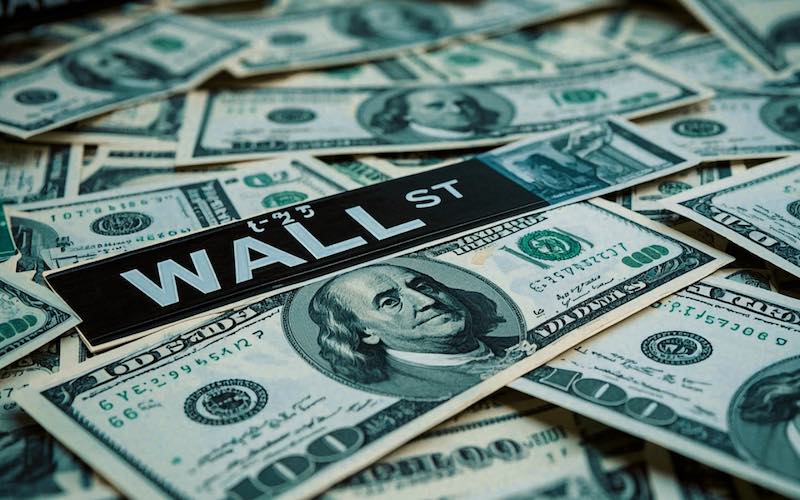July 29th Financial Breakfast: Gold prices fell to a three-week low as risk aversion cooled, Trump imposed a 12-day ceasefire on Russia, and oil prices rose nearly 3%.
2025-07-29 07:16:00

Focus on the day

stock market
The S&P 500 edged up on Monday, hitting a sixth straight closing high, while the Nasdaq also hit a record close in choppy trading as investors assessed the U.S.-EU trade deal and prepared for important market catalysts this week.
U.S. President Donald Trump and European Commission President Ursula von der Leyen unveiled a framework trade deal on Sunday that cuts EU import tariffs to 15 percent - half the threatened rate due to take effect on Aug. 1, but France denounced the deal as "capitulation."
The deal is the latest in a string of recent trade deals the United States has struck with countries including Japan and Indonesia, as top U.S. and Chinese economic officials resumed talks in Stockholm to defuse a trade war between the world's two largest economies.
“There’s some comfort in this deal because it’s not as likely to cause an economic disaster as the previous ones,” said Scott Welch, chief investment officer at Certuity. “However, it’s too early to tell what the long-term impact will be. While it’s certainly much better than the worse alternatives, I still hope that the negotiations will continue.”
The Dow Jones Industrial Average fell 0.14% to 44,837.56, the S&P 500 rose 0.02% to 6,389.77 and the Nasdaq rose 0.33% to 21,178.58.
The S&P 500 has now hit record closing highs for six straight sessions and notched its 15th record close of the year. The stock market has rebounded strongly after a sell-off since Trump announced a raft of tariffs in early April.
Sentiment was also boosted by continued investor enthusiasm for the potential of artificial intelligence technology, as well as the conclusion of some trade deals and an early better-than-expected corporate earnings season.
Investors are now awaiting the Federal Reserve’s policy statement on Wednesday, with the central bank widely expected to keep interest rates unchanged despite Trump’s pressure on Fed Chairman Jerome Powell to lower borrowing costs.
This week will also see a slew of earnings reports from heavyweights Meta, Microsoft, Amazon and Apple that could sway investor sentiment.
In addition to the Fed meeting and earnings, this week will also see the release of a slew of economic indicators, including a report on personal consumption expenditures (PCE), the Fed's preferred inflation measure, and the government's employment report to gauge the impact that tariffs may be having on consumer prices and the labor market.
Nike climbed 3.89 percent after JPMorgan Chase upgraded the stock to "overweight" from "neutral," saying investors should "buy it outright."
Energy .SPNY rose 1.15 percent and was the best performing sector on the S&P intraday, boosted by a more than 2 percent rise in oil prices, while real estate fell 1.75 percent and materials dropped 1.44 percent, the worst performers.
Gold Market
Gold prices fell to their lowest in nearly three weeks on Monday as the U.S.-EU trade deal boosted the dollar and risk sentiment, while investors awaited new clues on interest rate policy from the Federal Reserve's meeting this week.

Spot gold fell 0.8% to $3,310.45 an ounce, having earlier hit its lowest since July 9 at $3,301.29. U.S. gold futures fell 0.7% to settle at $3,311.2 an ounce, as the dollar index rose to its highest level in more than a week.
“I think the more trade announcements there are, the more the dollar will rise,” said Edward Meir, an analyst at Marex. “These tariff deals are positive for the dollar, making gold less attractive and sparking a sell-off amid high risk appetite.”
The United States and the European Union reached a framework trade deal on Sunday that imposes 15% import tariffs on most EU goods, just half the threatened rate, averting a larger trade war between the two allies.
The Fed will conclude its two-day meeting on Wednesday and is expected to keep its benchmark interest rate unchanged at 4.25% to 4.50%. Markets continue to price in a possible rate cut in September.
Silver fell 0.3% to $38.04 an ounce, platinum fell 1.1% to $1,386.03 and palladium rose 1.5% to $1,238.18.
Oil Market
Oil prices rose nearly 3% on Monday after the United States and the European Union reached a trade deal and President Trump announced he would shorten Russia's deadline to end the war in Ukraine or face sanctions. Brent crude futures were trading at $70.04 a barrel, up 2.3%. U.S. crude rose 2.4% to $66.71. Brent crude hit a 10-day high after Trump said he would shorten the 50-day deadline for Russia to 10 to 12 days.

The deal between the United States and the European Union and the potential extension of the tariff truce between China and the United States also provided support for global financial markets and oil prices, said Tony Sycamore, market analyst at IG.
The framework trade agreement with the European Union announced on Sunday imposes a 15 percent U.S. import tariff on most EU goods. Trump also said the deal requires the EU to buy $750 billion in U.S. energy over the next few years.
"Europe is going to have to give up a significant portion of the goods it gets from Russia, and (the trade deal) not only gives a huge boost to U.S. producers through that commitment, but it also puts more pressure on (Russian President) Putin to come to the negotiating table," said Phil Flynn, senior analyst at Price Futures Group in New York.
On the supply side, an OPEC+ panel stressed on Monday the need for full compliance with the oil production agreement before eight OPEC+ members meet separately on Sunday to decide on increasing oil output in September.
Foreign exchange market
The dollar rose against the euro and yen on Monday as markets were boosted by a trade deal between the United States and the European Union that provided some certainty and averted a global trade war.

U.S. President Donald Trump and European Commission President Ursula von der Leyen agreed on Sunday a framework trade deal that provides for 15% import tariffs on EU goods, half the rate Trump had threatened to impose from Aug. 1.
Last week, the U.S. and Japan reached a deal. "If you go back to early April or Liberation Day, the overarching theme has been selling of U.S. assets because of the uncertainty created by the new trade regime, and now you're seeing some signs of a return to normalcy," said Eugene Epstein, head of North American structuring at Moneycorp.
The dollar rose against the safe-haven Swiss franc, trading at 0.80325 franc, up 1%, while the dollar rose against the yen by 0.59% to 148.535.
The euro fell 1.25% to $1.159125, on track for its biggest one-day drop since mid-May, reversing an initial knee-jerk rally in Asian trading as investor focus turned to the impact of easing global trade tensions on the dollar overall.
The dollar fell sharply earlier this year, especially against the euro, as concerns that sharply higher trade tariffs with most major partners would hurt the U.S. economy led investors to consider moving out of U.S. assets. U.S. stocks were mostly lower but still trading near all-time highs.
Normally, the gap between government bond yields is the main factor in currency movements, but the euro is currently trading significantly higher than the gap between U.S. and eurozone yields.
"If you think about our expectations at the beginning of the year, no one really thought the euro would be this strong," said Anthi Tsouvali, multi-asset strategist at UBS Wealth. "We all thought, especially after Liberation Day, that the dollar would remain strong and we continue to see a weakening of the dollar."
The euro fell against the yen and pound, hitting a one-year high and a two-year high respectively at the start of trading. The dollar strengthened against the pound, with the pound falling 0.67% to $1.33545.
As concerns about the economic impact of punitive tariffs fade, investors' attention is turning to corporate earnings reports and central bank meetings in the United States and Japan in the coming days.
Both the Federal Reserve and the Bank of Japan are expected to keep interest rates steady at their policy meetings this week, but traders will be watching subsequent comments to gauge the timing of the next move.
Investors will also be watching Trump's reaction to the Fed's decision. The two-year Treasury yield, which typically moves in sync with Fed rate expectations, rose 1.5 basis points to 3.932% from 3.917% late Friday.
Trump has been putting heavy pressure on the Fed to cut interest rates sharply, and last week appeared to come close to trying to fire Powell but backed off given the market chaos that could ensue.
International News
U.S. Treasury sharply raises quarterly borrowing estimates to replenish cash reserves
The U.S. Treasury Department sharply raised its estimate for federal borrowing this quarter to $1 trillion, largely due to the impact of the debt ceiling. The Treasury said in a statement on Monday that it now expects net borrowing of $1.01 trillion from July to September, up from the $554 billion forecast in April. The government had to cut back on bond issuance in the first half of the year to avoid hitting the debt ceiling. The Treasury is now accelerating its bond issuance to rebuild its cash reserves since Congress raised the debt ceiling by $5 trillion earlier this month. As is customary, the Treasury's April forecast did not take the debt ceiling into account. It assumed a cash balance of $850 billion at the end of June, but the actual balance was only $457 billion. "Excluding the lower-than-expected cash balance at the beginning of the quarter, the borrowing estimate for this quarter is $60 billion higher than the amount announced in April," the Treasury said.
Canada PM says trade talks with U.S. at 'intense stage'
Canadian Prime Minister Mark Carney stated that despite recent comments from US President Trump that reaching a deal with Canada is not a priority, the two governments remain in advanced negotiations on trade. Carney downplayed Trump's assertion last week that the US was not focused on Canada and might not reach a deal on tariffs. "These are negotiations," he told reporters on Monday. "What is said publicly has to be seen in that context." He also stated that negotiations with the US are "at an intense stage" and reiterated that a deal would only be signed "if it's good for Canada."
Iran: Europe has no right to activate the "rapid restoration of sanctions" mechanism
On July 28, Iranian Foreign Ministry Spokesperson Bagae held a press conference on the Iranian nuclear issue and the regional situation. Bagae stressed that the UK, France, and Germany have no right to use the "snapback" mechanism to pressure Iran. Regarding the continued pressure from the UK, France, and Germany on Iran and their threats to activate the "snapback" mechanism to restore UN sanctions on Iran, Bagae stated that during the last round of negotiations between Iran and the three European countries, the focus was on the nuclear issue and the lifting of sanctions. Iran has consistently stressed that European parties have no right to activate the mechanism. Any abuse of the mechanism would inevitably complicate the nuclear issue. Iranian Foreign Ministry Spokesperson Bagae stated: "European parties have long attempted to use a topic in UN Security Council Resolution 2231 as leverage to pressure Iran. European parties fundamentally have no right to use this tool to reimpose sanctions. We have stated this during the last round of negotiations and before. If the three European countries abuse this topic, they will face an appropriate response from Iran." (CCTV News)
Russia closes 20 border crossings between Russia and Ukraine since August
On July 28, local time, the Russian legal portal released a message showing that Russian Prime Minister Mishustin has issued a government decree to close 20 road and rail crossings between Russia and Ukraine from August 1, 2025. (CCTV News)
Thailand and Cambodia ceasefire agreement officially takes effect
The ceasefire agreement between Thailand and Cambodia officially came into effect at midnight local time on July 28. On the afternoon of the 28th, Cambodian Prime Minister Hun Manet and Thai Acting Prime Minister Puttan, respectively, led high-level delegations to a special meeting on the Cambodia-Thailand border situation in Putrajaya, Malaysia. The Malaysian Prime Minister stated that Thailand and Cambodia had agreed to a ceasefire, which would take effect at midnight (local time on the 28th). The same day, both Thailand and Cambodia confirmed that they had reached an agreement on a ceasefire, which would take effect at midnight. (CCTV News)
Trump gives Russia 12-day ceasefire
According to the Russian Satellite News Agency on the 28th, US President Trump said that due to the lack of progress in mediating the Russia-Ukraine conflict, he would shorten the previously set 50-day ceasefire deadline for Russia and Ukraine to 10-12 days. Trump said, "I am going to set a new deadline, about 10-12 days from today. There is no reason to wait any longer. I wanted to be generous, but we just don't see any progress." Earlier that day, Trump, who was holding talks in Scotland, said that he decided to shorten the previously set 50-day deadline due to his frustration with Russian President Putin.
Trump: Tariffs on medicines to be announced soon
U.S. President Donald Trump said on Monday he plans to make an announcement soon on pharmaceutical tariffs, but did not give a specific date. Trump met with British Prime Minister Jeremy Starmer a day after announcing a trade deal with the European Union. "We're going to be making an announcement in the very near future on pharmaceuticals," Trump told reporters after their meeting in Scotland. "We have a big plan for pharmaceuticals. We want to bring a lot of pharmaceuticals back to the United States."
Domestic News
Emerging market ETFs recorded capital inflows into China for the ninth consecutive week, with a sharp increase in the scale of funds attracted, ranking first
Last week, investors saw net purchases of emerging market stock and bond exchange-traded funds (ETFs) for the ninth consecutive week. China maintained its top position, with inflows more than doubling from the previous week. Data compiled by Bloomberg show that US-listed emerging market ETFs investing in developing and specific countries saw inflows of $2.36 billion in the week ending July 25, compared to $672.4 million the previous week. By region, China saw the largest inflows, at $1.36 billion, led by the KraneShares CSI Overseas China Internet ETF (KWEB). Inflows into China surged 105% from the previous month. Argentina saw the largest outflows, at $4.29 million.
Shanghai Economic and Information Technology Commission: Strive to realize the opening of all autonomous driving areas in Pudong within this year, excluding Lujiazui and other areas
At the recently concluded 2025 World Artificial Intelligence Conference, Shanghai's demonstration operations for intelligent connected vehicles garnered widespread attention. On July 28th, Han Dadong, Second-Level Inspector and Director of the Automotive Industry Department of the Shanghai Municipal Commission of Economy and Information Technology, revealed in an interview that Shanghai will systematically expand the areas open to autonomous driving, aiming to fully open autonomous driving test roads in Pudong New Area by the end of this year, while also promoting the opening of test roads in Fengxian and Minhang districts.
- Risk Warning and Disclaimer
- The market involves risk, and trading may not be suitable for all investors. This article is for reference only and does not constitute personal investment advice, nor does it take into account certain users’ specific investment objectives, financial situation, or other needs. Any investment decisions made based on this information are at your own risk.





















